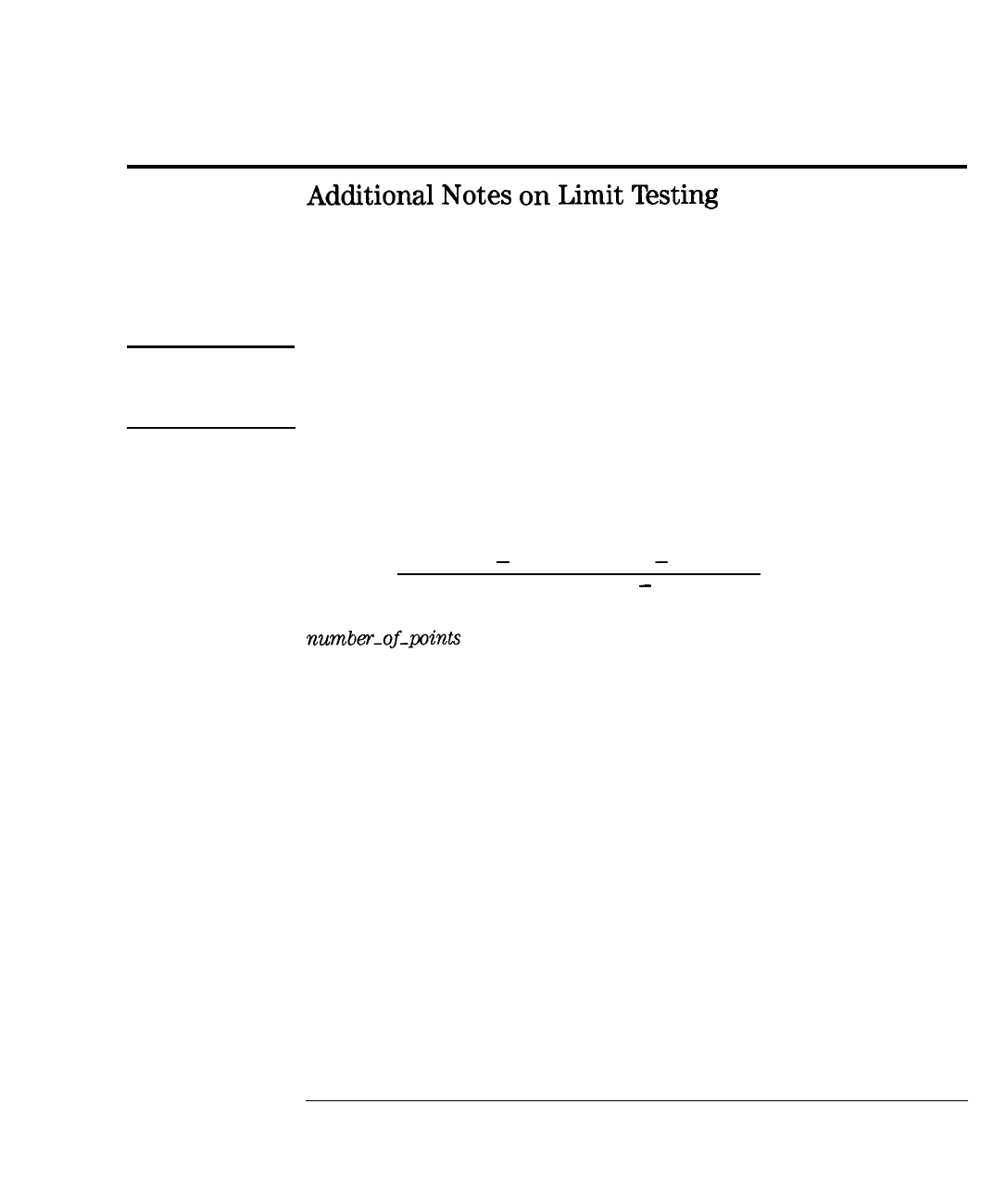I
-
Using Instrument Functions
Using limit Testing
Stimulus and Amplitude
Values
CAUTION
Calculating the
Frequency of a Data
Point
Additional
Notes
on
Limit
Testing
In frequency sweep mode, the stimulus values are interpreted as frequencies;
in power sweep mode, the stimulus values are interpreted as output power
levels.
The values entered for stimulus and amplitude are unitless. If the
measurement format is changed after limit lines are set, the amplitude values
do not automatically change. Therefore, you should select the format you
want to use before entering your limits.
The frequency of each data point is calculated using the following formula:
Freq @t-number) =
(pt-number
-
1) x (stop-freq
-
start-freq)
number-of -points
-
1
+ start-freq
where pt-number ranges from 1 (for the leftmost display point) to
number-of-zxints
(the rightmost display point).
limit Testing and
Measurement Points
Limit testing is only performed on actual data points, not interpolated values
between them. The limit lines or points that you enter are converted
to values at each measurement point. Most of the time, this has little or
no effect on the validity of the limit testing. However, note the following
examples of problems that could arise when using limit lines:
4-47
